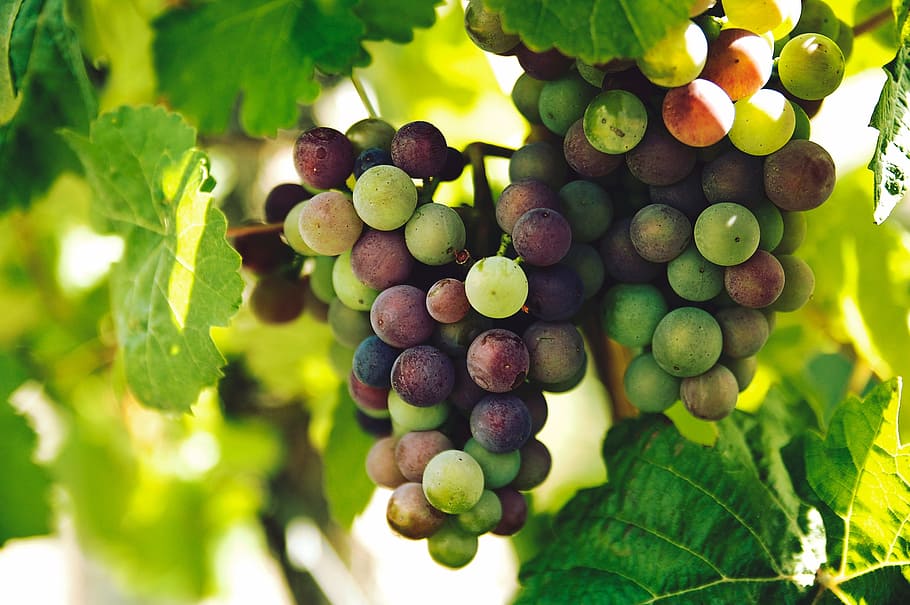| Marechal Foch |
| (Kuhlmann 188-2) A very early ripening black grape with small berries and clusters that produce a fruity light red table wine. The vines are hardy and medium in vigor and production. Maréchal Foch should be grafted on a resistant rootstock to ensure adequate vigor. Birds are attracted to the small black berries. |
| Marquis |
| (Plant patent 11,012) was named and released at Geneva in 1996. Clusters are very large, medium compact, and attractive, with large, round, yellow-green berries (3.5 - 5.0 gm/berry). Texture is melting, and the taste is very flavorful. Ripe fruit holds well on the vine, with the flavors going from a mild fruity flavor when first ripe, to a stronger Labrusca flavor two weeks later. Giberrellic acid treatment is not recommended, but well-timed cluster thinning and cane girdling can increase berry size and improve cluster compactness. Vines are moderately hardy, medium in vigor and productive. |
| Marroo Seedless |
| blue-black, seedless, medium-sized fruit with firm, juicy flesh and sweet, mellow flavor. Ripens mid-season. |
| Mars |
| (Plant patent 5680), a release from the University of Arkansas, is a vigorous, blue seedless grape. The flavor is mildly labrusca, similar to Campbell's Early, and the berries are slipskin (having a tough skin that separates readily from the pulpy flesh). Clusters are medium sized, cylindrical, and well filled. Hardiness has been good at Geneva, New York, and the vines are resistant to several major diseases. Vines may bear fruit precociously, and production should be controlled on young vines to prevent delays in establishment. Mars has been recommended in Arkansas as a home garden grape with limited potential for commercial marketing. |
| Melody |
| (Plant patent 6159) was introduced by Cornell University in 1985. The young wine is fruity with hints of apricot and floral aromas. Quality is among the better of the white hybrids. The vine is moderately disease resistant and very productive and vigorous. Selection of well exposed canes when pruning will ensure an adequate crop each year. No cluster thinning is required. Melody is in limited commercial production and acreage is increasing. |
| Merlot |
| Has produced superior wines in New York. However, it has a very long vegetative growth cycle and tends to produce dense, shaded canopies. This leads to bunch rot and reduced winter cold tolerance. It is not recommended for any but the most favored sites in New York. |
| Moore's Diamond |
| Resembles Niagara in fruit and Concord in vine and is one of the few white American varieties which have been used to produce dry table wine. It is also desirable as a table grape, but the skins may crack during wet seasons. |
| Muscat of Alexandria |
| European; seeded green or amber fruit; for wine; ripens late midseason; spur prune. |
| Muscat Ottonel |
| A productive variety which does well in most years. However, if wood maturity is restricted by cool summer temperatures or when winter cold is severe, cold injury results. It’s cold hardiness is similar to that of Gewürztraminer. It makes excellent muscat flavored wines, and is the best adapted of the traditional muscat varieties in New York. Resistance to bunch rot is moderate. |
